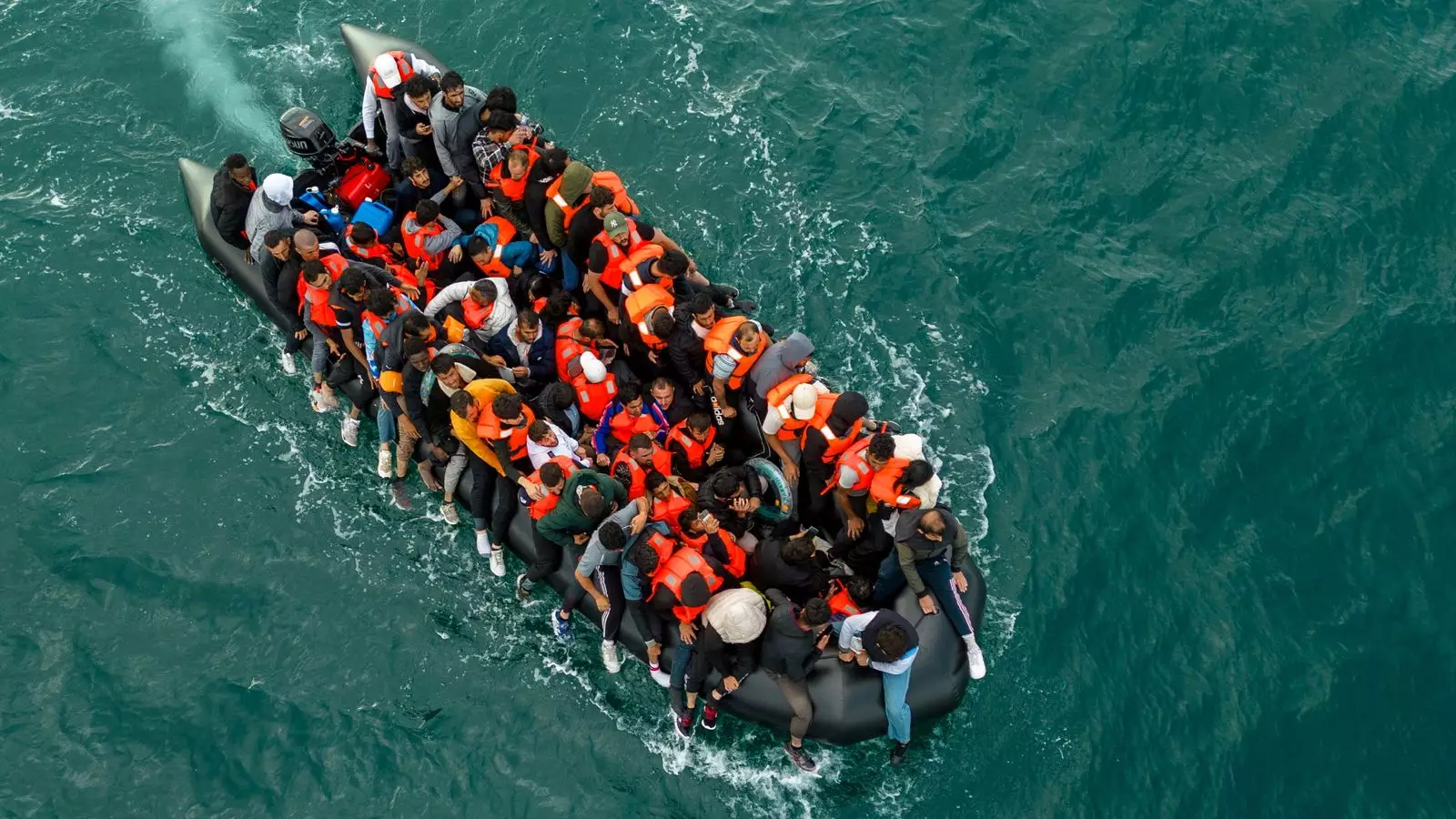The recent updates to the Home Office guidance in the United Kingdom represent a significant shift in immigration policy, specifically related to the paths available for refugees seeking British citizenship. As of February 10, the guidance explicitly denies citizenship to individuals who arrive in the UK through illegal means, such as small boats or concealed vehicles. This is particularly consequential for those who undertake perilous journeys in search of safety and stability, as their commitment to seeking refuge is met with stringent legal barriers.
Central to the Home Office’s new stance is the concept of “Good Character.” This standard has been expanded with the intention of reinforcing a narrative around the value of lawful entry into the UK, thereby categorically excluding those who do not adhere to these guidelines. Notably, the new directives clarify that arriving as a passenger on a commercial airline does not fall under this restriction, creating a pronounced division between forms of entry. This raises ethical and humanitarian questions about the way societies view migrants, particularly those fleeing dire circumstances.
The adjustment to the “Good Character” definition not only reflects a punitive approach but also risks stigmatizing individuals who are often fleeing persecution, conflict, or dire economic circumstances. The implication here is that a person’s worthiness for citizenship is linked not to their character or contributions to society but to the manner in which they arrived. This approach can foster a sense of disenfranchisement among refugees, who may already be grappling with trauma as they adapt to a new environment.
Data indicates that the number of individuals arriving in the UK via small boats has surged since the Labour Party assumed office, with nearly 25,000 arrivals recorded in a recent timeframe — a dramatic increase of 28% year-over-year. This uptick draws attention to the broader socio-political context surrounding migration, including escalating global instability and an increasing number of individuals seeking asylum. Ironically, while the government mandates tougher measures against those arriving unlawfully, it overlooks the systemic issues driving these migrations.
Critics, including Labour MPs and the Refugee Council, argue that the stringent regulations only serve to marginalize refugees further. For instance, MP Stella Creasy emphasized on X that such policies effectively create a “second class” status for those granted refugee status but barred from acquiring citizenship. By denying the pathway to citizenship, the government potentially inhibits social cohesion and the ability for refugees to contribute meaningfully to British society.
Responses from advocacy groups and political figures have been resounding, with calls for government reconsideration of the new guidelines. The Refugee Council contends that the changes lack logical foundation, asserting that the British public generally supports the idea of refugees integrating into society. The organization argues for a more inclusive approach that recognizes the value and potential contributions of refugees rather than erecting barriers to their full participation in society.
Moreover, there is a growing concern about the long-term implications of these policies on social unity and public perception of refugees. The rhetoric surrounding illegal entry suggests a monolithic view of migrants as threats rather than acknowledging the diverse reasons individuals flee their home countries. In doing so, the government risks sparking fear and division within the community rather than fostering understanding and support for those in need.
The Home Office’s recent guidelines highlight a troubling trend in immigration policy that prioritizes control over compassion. It is essential to reflect on the underlying reasons that lead individuals to undertake dangerous journeys in the pursuit of asylum. A policy framework that truly embodies humanitarian values would extend pathways to citizenship for refugees rather than constricting them further.
Moving forward, a balanced approach that honors the dignity of individuals, regardless of the manner in which they arrive in the UK, is crucial for promoting social harmony and recognizing the invaluable contributions that refugees can make. As discussions on immigration continue, it is imperative to engage critically with these policies and advocate for systems that reflect shared values of humanity and justice.


Leave a Reply